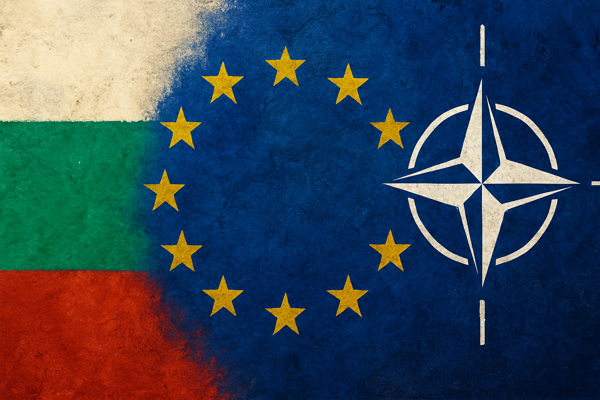
Published: 13 July 2025 | Author: Dr. Dimitar Keranov
Bulgaria’s Democratic Challenge
Bulgaria has been a member of the European Union since 2007. It joined NATO in 2004 and became part of Schengen in 2024. The adoption of the Euro is scheduled for January 1, 2026, a milestone of European integration. On paper, Bulgaria’s path is clear: full integration into the Euro-Atlantic community. But beneath the surface, challenges remain.
Russian influence in Bulgaria has not vanished. It persists in business circles, in the media landscape, and especially in politics. Some political parties and figures openly promote pro-Russian positions. Others avoid clear statements, presenting themselves as pro-European while quietly aligning with Russian interests. Widespread corruption, total lack of rule of law, and opaque networks make it easier for Russian influence to take root and linger.
Formally, Bulgaria is part of the European core: fully integrated into EU institutions, NATO, and on track for Eurozone membership. But in practice, it still balances between two realities. The question is not whether alliances exist on paper. It is whether Bulgaria can back them up with real political will, consistent reforms, and a clear break from habits that leave it vulnerable to foreign manipulation. Today, that political will remains uncertain.
Until Bulgaria decisively breaks away from its lingering Russian ties — in business, politics, and mindset — it will never truly be a stable democracy and a fully reliable European and Transatlantic partner.
